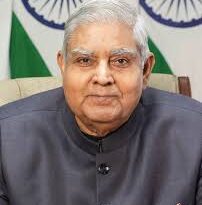Transgender reservation: Supreme Court requests comments from three states and five UTS
Transgender refers to individuals whose gender identity or expression differs from the sex they were assigned at birth. They have been facing a lot of discrimination in India from several spheres of public life which ignores them in education, employment, entertainment, health and safety etc.
In 2014 the landmark judgement was held National Legal Service Authority (NALSA) vs. The Union of India in which the country legally recognised the rights of transgender community. But, the implementation of these policies in spite of supporting their community turned out to be inadequate and inconsistent.
The Supreme Court aims to address the gap in the implementation of reservation policies for transgenders. States of Tamil Nadu, Karnataka, West Bengal and Union Territories of Delhi, Chandigarh, Puducherry, Andaman and Nicobar Islands, Lakshadweep have been asked to respond to this matter of issue. These states and Union Territories have been selected on the basis of their diverse demographic profiles which may provide a comprehensive understanding of challenges and opportunities in implementing reservation policies for transgenders.
Reservation is brought into our country for promotion of equity and social justice. Like women, SCs, STs transgenders are also too much deprived in our society. Thus considering them for their reservation could fulfill their employment and educational opportunities by enhancing social upliftment. The base is to get represented equally with other communities.
Conclusion
The Supreme Court’s request for responses can turn critical or otherwise. But it has strictly underscored the need for an intentional effort to bridge the gap between legal recognition and its implementation of policies for transgenders. As the nation is waiting for the responses from the states and the outcomes it may prove and provide equity and justice.





